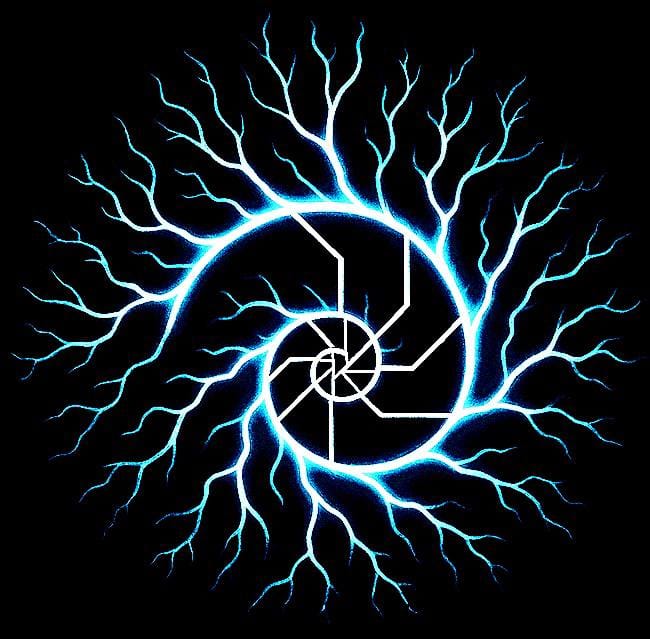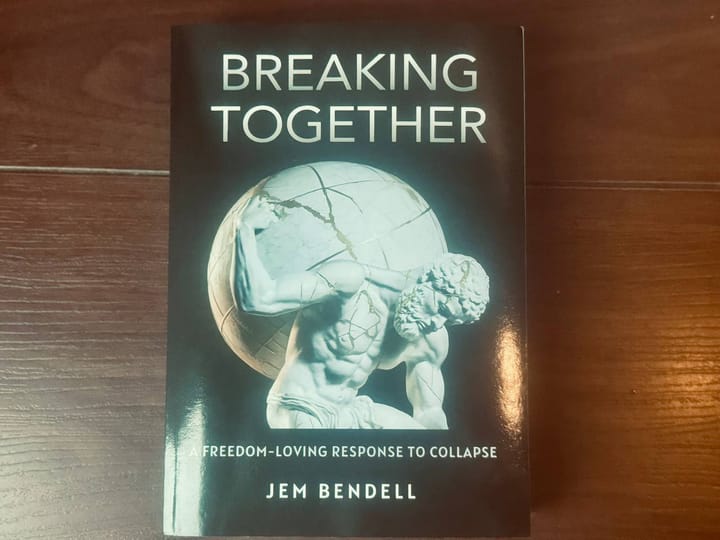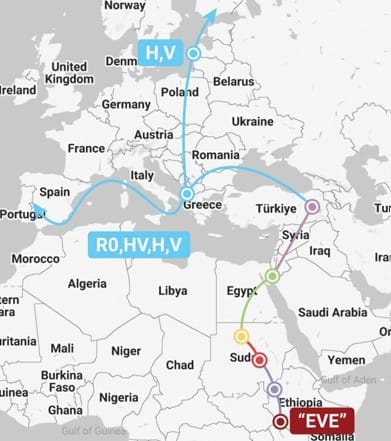The Roman Pattern: How Civilizations Collapse Like Living Systems

Introduction: "I see Rome everywhere."
Lately, I've been reading The Fate of Rome. Every page feels strangely familiar, as if I'm watching the slow replay of our age through another body.
It's not just history. It's anatomy.
Rome was once a small, self-organizing experiment of life that grew, expanded, and consumed its surroundings until it reached its ecological ceiling. Reading it now, I don't see ancient marble or emperors, I see the same metabolic patterns that shape our world today; extraction, complexity, exhaustion, denial, and the search for meaning in the ruins.
It made me realize something I can't unsee: civilizations are not moral stories...they are biological events.
They Rise and fall the way forests burn and regrow, the way stars expand and collapse. They are life colonizing life...energy folding into form until the form can no longer hold it.
And in that mirror, I see us.

Ecological Overshoot: Growth Beyond the Base
Rome's genius was not in marble or warfare, but in metabolism. It turned sunlight, grain, and bodies into empire. But every system that feeds on external energy eventually meets it's limit.
As the population surged, forests fell, soils thinned, and the climate cooled.
When the feedback arrived...famine, disease, political unrest.. the empire cold not metabolize it fast enough. The system had become too rigid to adapt.
We've done the same, only at planetary scale. Where Rome exhausted the Mediterranean, we are exhausting the earth, Our empire runs on fossil sunlight, but it obeys the same physics: Overshoot first, correction later. Collapse is not punishment. It's balance finding its way home.
Pandemics: Biology's Correction Mechanism
Harper's account on Rome's plagues is chillingly familiar.
The Antonine, Cyprian, and Justinian pandemics didn't just kill people, they re-patterned society. Armies thinned. Labor systems broke. Faith and authority realigned.
Pandemics, then as now, are not random tragedies, they are the biosphere's way of feeding information back into overgrown systems.
COVID-19 was our reminder: when networks tighten too much, a single biological signal can ripple through the entire structure.
Collapse is not only social. It is cellular.

Infrastructure and the Burden of Complexity
The Romans built aqueducts, roads, and baths. Infrastructure as the skeleton of civilization.
But in time, that skeleton became a cage.
Maintenance costs outpaced the empire's capacity to repair itself. Complexity, once a sign of progress, became fragility.
Today, our aqueducts are digital; data centers, grids, shipping routes.
We, too, live inside a machine that must never stop moving.
When the flow slows, even slightly, panic sets in.
The similarity is uncanny: a system so vast and interdependent that it forgets it was ever part of nature at all.
Myth and Meaning: The Last Line of Defense
When Rome could no longer hold its borders, it turned to story.
The empire declared itself eternal, divine, destined. Anything but mortal.
Ceremony and spectacle replaced stability.
The myth grew louder as the foundations cracked.
Today, we have our own myths: endless growth, technological salvation, human exceptionalism.
We live stream the collapse and call it content.
But mythology is not the problem, it's the body's way of self-soothing while it unravels. When reality becomes unbearable, narrative becomes anesthesia.
Centralization and Control: The Last Reflex
In crisis, Rome tightened its grip. Emperors ruled by decree, bureaucracy swelled, and surveillance of citizens increased. Control felt like safety, but it was only rigidity.
Systems that cannot distribute power become brittle, not strong.
Modern states respond to uncertainty in the same way, with data surveillance, financial technocracy, and algorithmic order. But control is not coherence.
Every tightening accelerates the next break.
Denial and Decadence: The Psychology of Overshoot
By the fourth century, Romans still celebrated victory parades while their fields turned to dust.
Denial always looks beautiful at first. It wears gold and perfumes and speaks of destiny.
Our modern denial is more subtle. It wears the face of optimism, innovation, and progress.
We moralize collapse, calling it a failure of leadership or decadence of culture, when it is simply the body of civilization reaching exhaustion.
Rome was not destroyed by barbarians. It was decayed from within because it grew beyond what the Earth could sustain.
Transformation: Collapse as Renewal
The fall of Rome was not the end. It was the composting of empire. It's material, spiritual, and intellectual DNA scattering into new forms: monasteries, languages, local economies, new mythologies of meaning.
Collapse is the space where the old story releases and the next begins.
It's not apocalypse. It's metamorphosis.
The same is happening now.
We are leaving the fossil-fuel empire and entering something post-imperial, post-centralized, post-illusion.
We can resist it, or we can learn to navigate it with dignity.
The Pattern Live On
Reading The Fate of Rome isn't about nostalgia for marble.
It's about seeing the fractal: how civilizations breathe, how overshoot humbles them, how nature always gets the final word.
Rome's fall was not failure. It was feedback.
And so is ours.
If we listen closely, the same pulse moves through everything:
the rise and decay of cities, the looping of economies, even the flicker of human desire.
It is all the same rhythm. Energy folding into form, learning itself, dissolving, and beginning again.
Maybe that's what wisdom is:
not preventing collapse, but moving with it...awake, anchored, and aware of the larger pattern that never dies.




Comments ()